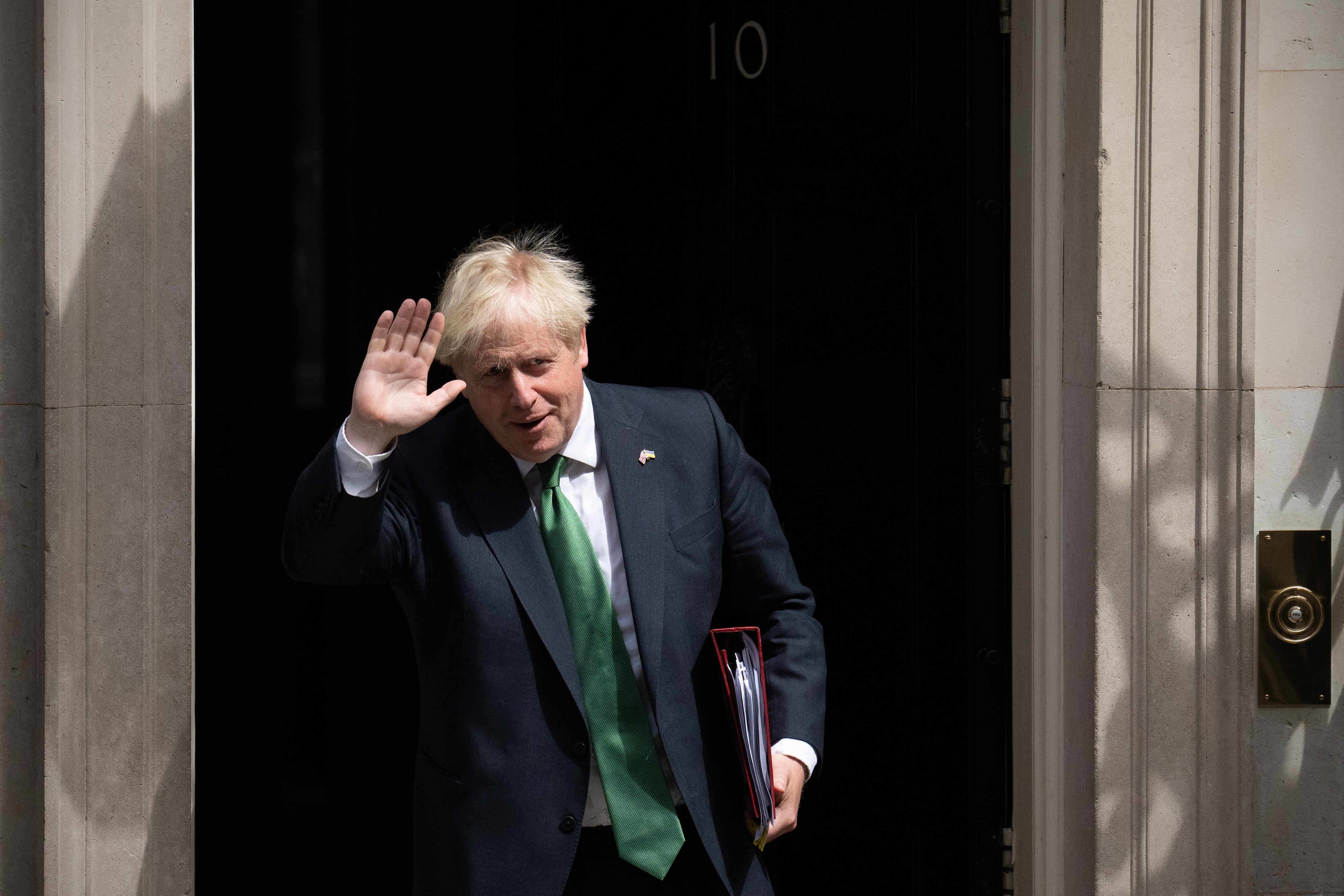Johnson will use his final Commons performances to emulate Thatcher
Votes of no confidence are usually a chance for a party to rally around their leader, no matter how much of a lame duck they are, writes Sean O'Grady


There are three things never to forget when it comes to parliamentary votes of no confidence in the government.
The first is that, whether tabled by the government or the opposition, if they are lost – either with the formal use of the words “no confidence”, or on some issue explicitly declared by the government to be a matter of confidence (such as a crucial budget measure, or constitutional change) – then either a change of government will follow (possibly a hung parliament), or else there is a general election. Theoretically, they are moments of great import, with the life of the administration, political careers and the future of the nation all hanging in the balance.
However, most votes of confidence change nothing and are purely performative, usually tabled by an opposition party to shame a government, exploit divisions, or capitalise on some embarrassment, as the Liberal Democrats did after the Tory internal confidence vote in Boris Johnson in June.
While not exactly routine, they are uncommon, and governments are obliged to have the prime minister reply to those tabled by the official opposition, and for them to be held in a timely way. They can be moments of high drama, such as the one on the Westland affair after the resignation of Michael Heseltine in 1986. At the time, Margaret Thatcher thought she might not survive as PM; but the opposition leader, Neil Kinnock, failed to rise to the occasion.
Usually, though, for all the pomp, they are inconsequential affairs. The last time such a vote provoked the fall of a government was in 1979, and it has only happened twice in a century. It has never provoked the resignation of a party leader as party leader.
Third, and perversely, votes of no confidence can rally a weakened and divided party around even a lame-duck leader, as now – and this may partly explain why the prime minister was keen to have one on his own terms and his government’s, without, as Labour tried, having his own personal reputation put to the vote of his sceptical and rebellious colleagues.
This way, the Tories will be duly reminded that, however much they loathe Johnson and think the government is exhausted and chaotic, they are Conservatives, and believe that any Conservative government, no matter how rickety, is preferable to a Labour government, no matter how moderate or effective. In a worst-case scenario, when a government enjoys a large majority, a few very disillusioned backbenchers might take the opportunity to abstain, but outright mutiny is very rare.
Oppositions often seem to forget this unifying effect on the governing party. For example, Theresa May famously lost numerous Brexit votes with record-breaking rebellions against her – but as soon as Jeremy Corbyn tried to drive the advantage home, all of her most entrenched critics happily traipsed through the voting lobbies to support her. The Conservatives, after Johnson took over, were actually wanting to lose a confidence vote in order to trigger an election (under the terms of the now-repealed Fixed-term Parliaments Act 2011). Even the Tory Eurosceptic “whipless rebels” usually voted for John Major’s government, or abstained on critical Maastricht votes. On one occasion, though, Major had to be rescued by the Liberal Democrats, when the whole Maastricht Treaty was imperilled.
The other celebrated example of high drama was the confidence vote in November 1990 on Mrs Thatcher’s government, which was tabled immediately after she announced her decision to stand down. It allowed the depressed and divided Tories to hold an impromptu rally and did little good for Labour. If they seriously thought it would usher in a Kinnock government by Christmas, they were badly deluded.
Liberated, she put on a bravura performance and happily declared: “I am enjoying this.” Europe, funnily enough, was a big factor in her fall, but she was then, at any rate, no Leaver: “We have worked for our vision of a Europe which is free and open to the rest of the world, and above all to the countries of eastern Europe as they emerge from the shadows of socialism. It would not help them if Europe became a tight-knit little club, tied up in regulations and restrictions. They deserve a Europe where there is room for their rediscovered sense of nationhood and a place to decide their own destiny after decades of repression.”
She concluded in combative fashion: “There is something else which one feels. That is a sense of this country’s destiny: the centuries of history and experience which ensure that, when principles have to be defended, when good has to be upheld and when evil has to be overcome, Britain will take up arms. It is because we on this side have never flinched from difficult decisions that this House and this country can have confidence in this government today.”
So it’s no great surprise that Boris Johnson will use his last confidence vote and his last session of Prime Minister’s Questions to emulate her. He’ll mount valedictory barnstorming shows, make fun of his opponents (on the opposition benches), attack his enemies (behind him), make a few jokes about Captain Hindsight and Humble Crofter Blackford, boast about his achievements, and defiantly leave with his head held high. He’ll be subliminally pointing out how much they’ll miss him when he’s gone. Weirdly, the Tories might even give him a standing ovation. Them’s the breaks.



Join our commenting forum
Join thought-provoking conversations, follow other Independent readers and see their replies
Comments